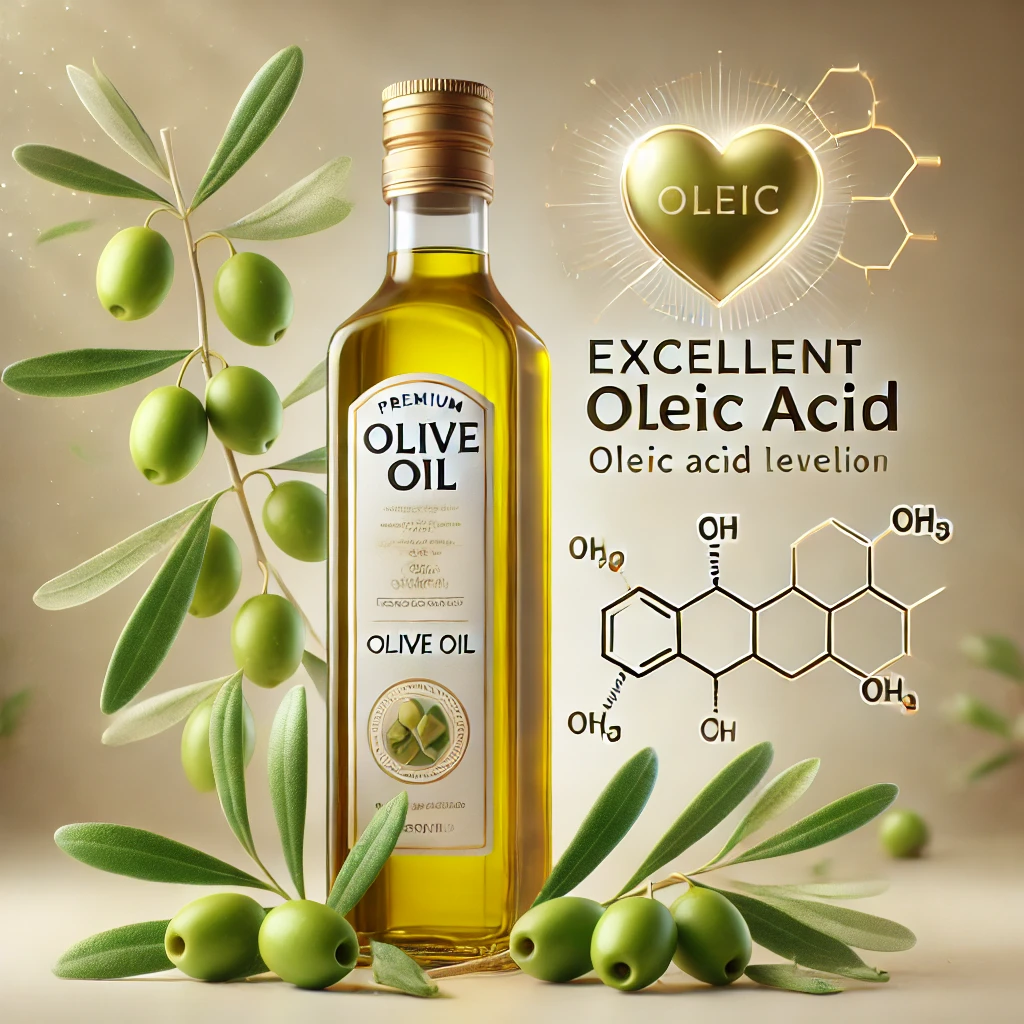The Importance Of Our High Oleic Acid. 0.3%

Health Benefits of Low Free Acidity
- Higher Antioxidant Levels: Low free acidity is often associated with higher polyphenol content, which offers potent antioxidant properties. These antioxidants help reduce inflammation, combat oxidative stress, and protect against chronic diseases.
- Supports Cardiovascular Health:
- Oleic acid, the primary component of olive oil, is a monounsaturated fatty acid known to reduce LDL (bad cholesterol) and improve HDL (good cholesterol).
- Low acidity ensures that the oleic acid and antioxidants remain intact for maximum benefit.
- Prevention of Chronic Diseases:
- Studies suggest diets rich in high-quality olive oil can lower the risk of cardiovascular disease, type 2 diabetes, and certain cancers.
- The anti-inflammatory effects also help in managing autoimmune and degenerative diseases.
- Digestive Health:
- Low acidity olive oil is gentle on the stomach, aiding digestion and protecting the gastric lining.
How Oleic Acid Works
Oleic acid reduces cholesterol through several biological mechanisms:
- Enhancing HDL Cholesterol Production: Oleic acid activates liver receptors that increase the production of high-density lipoprotein (HDL) cholesterol. HDL helps transport excess cholesterol from the arteries to the liver, where it can be processed and excreted.
- Modulating Gene Expression: Oleic acid influences genes involved in lipid metabolism. It can increase the expression of enzymes like lecithin-cholesterol acyltransferase (LCAT), which plays a role in forming HDL particles that remove cholesterol from the bloodstream.
- Reducing LDL Oxidation: Oleic acid can reduce the oxidation of low-density lipoprotein (LDL) cholesterol, which is a key factor in the development of atherosclerosis. By preventing LDL from becoming oxidized, it helps maintain its safe transport in the bloodstream and reduces the risk of plaque buildup in the arteries.
- Improving Lipid Profile via the Liver: Oleic acid influences liver enzymes like AMPK (AMP-activated protein kinase) to regulate the production of triglycerides and LDL cholesterol. This leads to an overall healthier lipid profile.
In summary, oleic acid reduces cholesterol primarily by boosting HDL production, preventing LDL oxidation, and regulating lipid metabolism through enzymatic and genetic pathways.